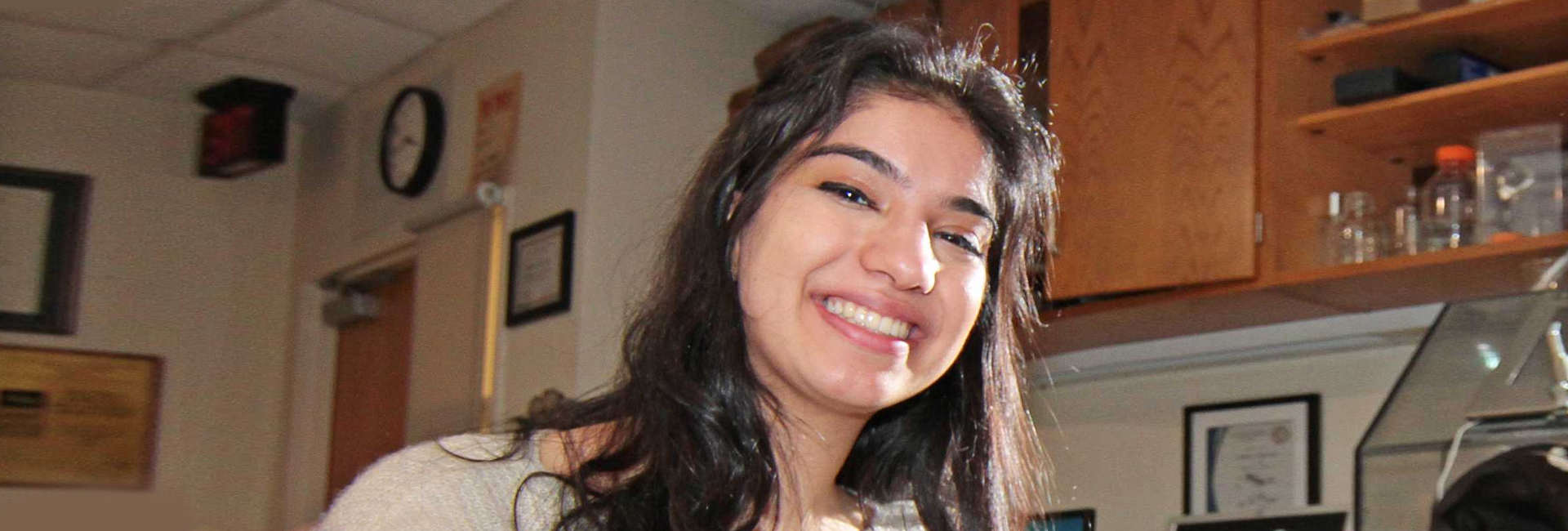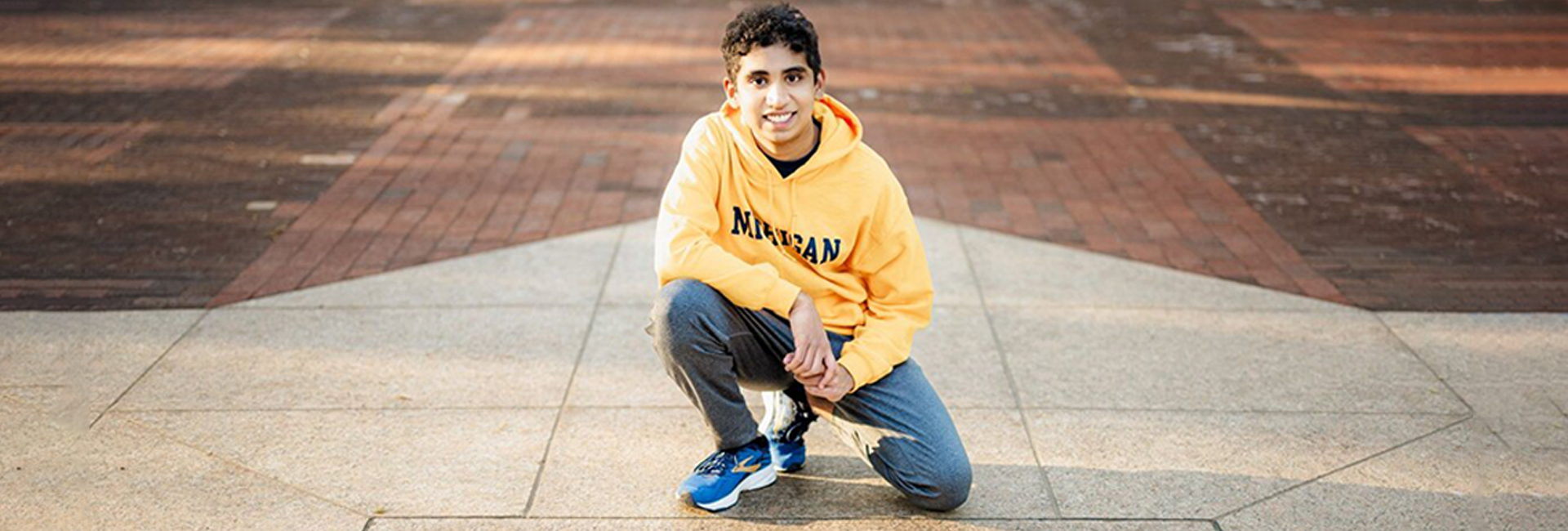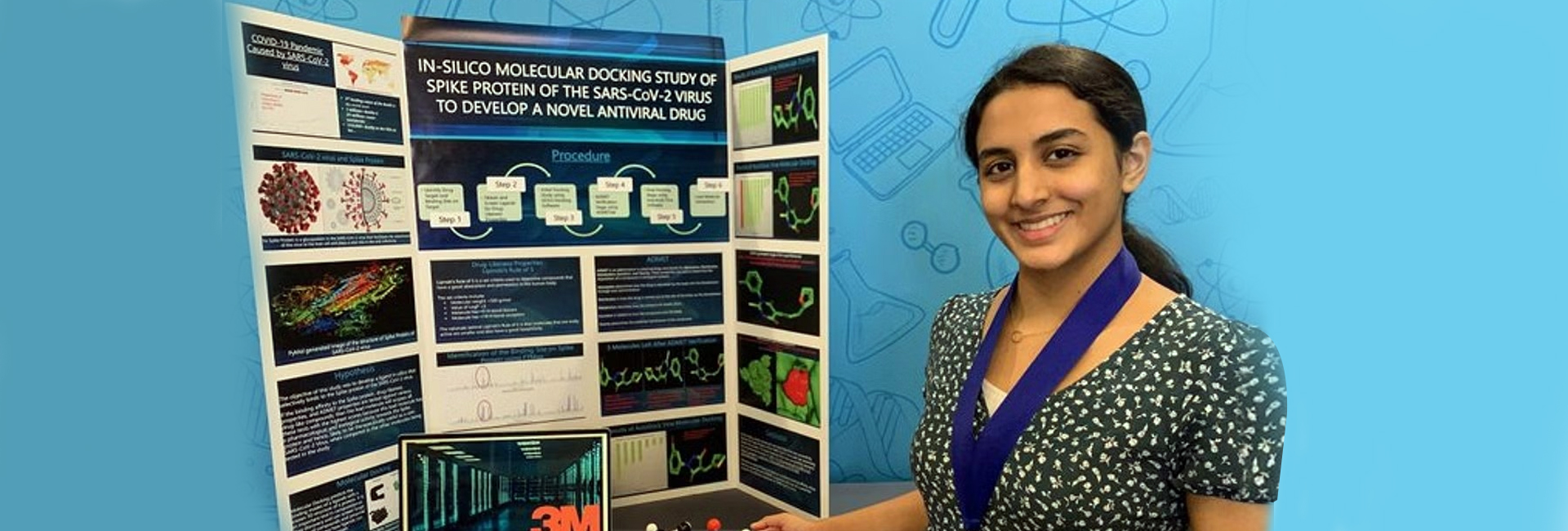(April 2, 2023) 17-year-old Indian American Ambika Grover was quite nervous as she sat along with the other 39 finalists at the 2023 Regeneron Science Talent Search award ceremony. The Greenwich High senior spent a week in Washington DC with other students presenting their projects to judges at the most prestigious science and mathematics competition for high school seniors in the US. Though she didn’t expect to win, she ended up taking sixth place for her project about ischemic strokes. “When I heard my name, I was so excited,” the teenager said, who brought home $82,000, with $80,000 coming from her sixth-place win and $2,000 from being selected as a scholar. And now, the Riverside resident wants to use the prize money towards her future college tuition fee.
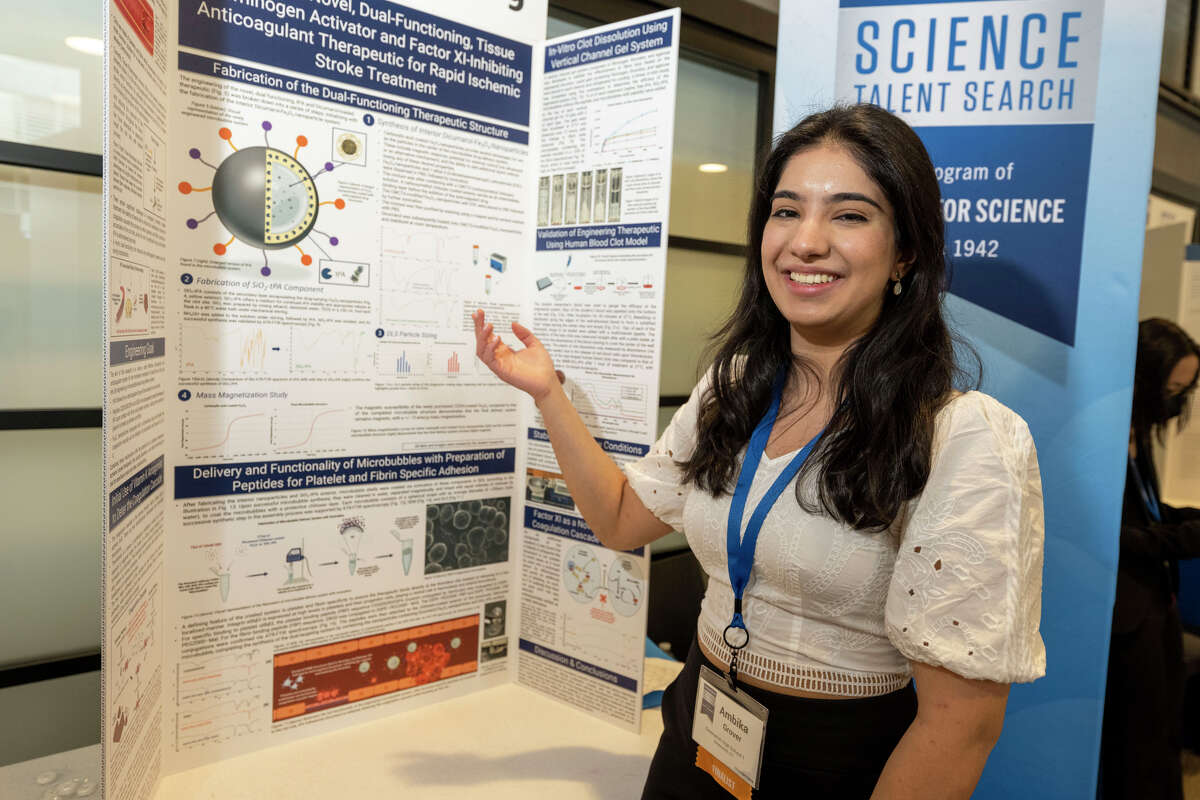
Ambika Grover at Regeneron Science Talent Search
The teenager reveals a startling number that suffers from the effects of a stroke each year – 15 million – and out of which, there is a five-and-a-half-million-person mortality rate. In this, ischemic strokes (wherein an artery becomes partially or fully blocked due to a blood clot) account for 87 percent of all strokes. And her research lies in this area as currently, tissue plasminogen activator (tPA) is used to treat ischemic stroke, but one of its shortcomings include the risk of bleeding elsewhere and the inability to stop the forming of new clots. That’s when Ambika decided to dive deep into the research and came up with a probable solution.
She has engineered a targeted therapy for patients of ischemic stroke, which is caused by blood clots that deprive the brain of oxygen, for the medicine and health project. She has developed an injectable layered microbubble designed to target and break up blood clots and prevent them from reforming. She believes this can be used to restore the flow of oxygen-carrying blood to the brains of ischemic stroke victims.
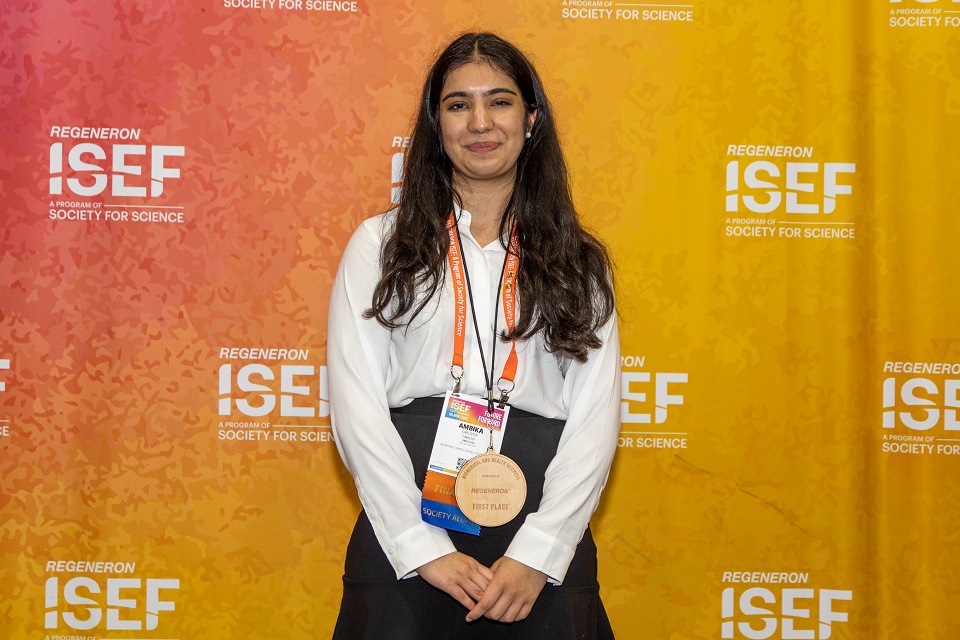

For the same, the high schooler used magnetic iron oxide nanoparticles coated with a layer of anti-coagulant to prevent more clots from forming and a layer of tPA to break up the clot. “Ambika’s therapeutic innovation has the potential to make a real difference in how we treat ischemic strokes; we are encouraged by her results and eager to see how her research advances the field,” said Maya Ajmera, president and chief executive office of the Society for Science and Executive Science News.
The Indian American teenager, who sees herself conducting cardiovascular disease research someday, has already applied for a patent for her microbubble. She is keen to minor in economics in college and explore the intersectionality of economics and technology.
Ambika is also the president of the Girls Who Code Club and is one of 12 debaters selected from 140,000 to compete internationally with the USA Debate Team.
She is currently gearing up for an internship at Greenwich Hospital in May, where she will be working with someone who specialises in strokes. She also hopes to continue with her research in college and take it to the next level – using real-life applications. “I’m hoping to really learn more about how it applies to patients and the challenges we face deciding what actions we take when someone has an ischemic stroke and I want to use that knowledge to help me take this research further,” the Global Indian said.

